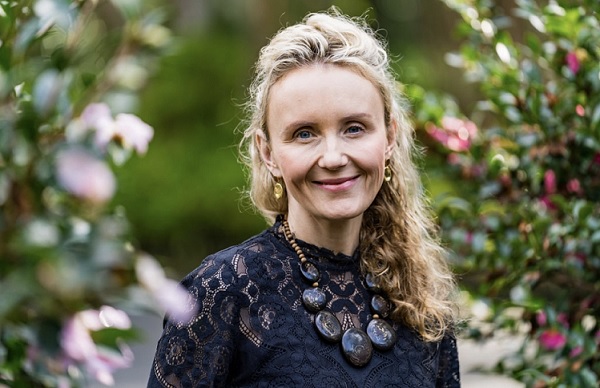Being a cancer patient is an exhausting and frightening journey, but returning to work as a nurse whilst continuing to recover was a whole other ball game according to Sally Kriel, Clinical Nurse Consultant at the Sunshine Coast University Hospital.
Sally was diagnosed with bowel cancer in 2018 at just 38 and had recently returned to work following the birth of her second child.
Her symptoms had included abdominal pain and cramping, and a ‘gut feeling’ of something not being ‘quite right’. While she didn’t experience any bleeding and her haemoglobin was normal, her GP sent her for a colonoscopy to ‘cover all bases’. Fortunately for Sally, her decision to speak to her GP about her symptoms and the GP’s decision to order further investigations led to an early cancer diagnosis - and may have even saved her life.
Bowel cancer is Australia’s third most diagnosed cancer, and second deadliest cancer behind lung cancer. Young-onset bowel cancer is on the rise in Australia and is the deadliest cancer for those aged 25–44 years. Despite these statistics, many people – including some health professionals –can think that younger adults are ‘too young’ to have bowel cancer.
“In the early days after my diagnosis when health professionals or friends would tell me that I was ‘too young’ to have bowel cancer, I felt alone and vulnerable, and also frustrated because more than 10 per cent of Australians who are diagnosed with bowel cancer are under 50 [years old],” Sally said.
“Today, I turn these conversations into a teaching opportunity. It’s important to dispel the myth that bowel cancer is an older person’s disease because we need to make sure younger people can access the necessary investigations and support so that bowel cancer is treated early. We have an incredible health system, and more than 90 per cent of patients with early bowel cancer can be cured if treated in time.”
Sally underwent a right hemicolectomy to remove the right side of her bowel, and because her cancer was found early, she was able to avoid chemotherapy and radiation. And then came her recovery.
 Sally Kriel, Clinical Nurse Consultant at the Sunshine Coast University Hospital, was diagnosed with bowel cancer in 2018
Sally Kriel, Clinical Nurse Consultant at the Sunshine Coast University Hospital, was diagnosed with bowel cancer in 2018
“Recovery was complex, tiring and busier than I had anticipated. I realised healthcare can be disjointed and expert care coordination is key,” Sally said.
“I developed a deepened empathy for patients and their carers. I learned firsthand that being unwell doesn’t necessarily mean that you can put your other roles on hold, like being a parent. On my hardest days I learned to parent from the bedside and the lounge. It was a very challenging time, but it has given me a privileged insight into the world of a patient,” Sally said.
But after 10 months, Sally felt well enough to begin preparing to return to work
“I was fortunate to be able to reach out to a senior colleague who had also recently returned to work after her cancer treatment. She gave me such great advice around pacing my return to work and most importantly being kind to myself. I was able to implement these tips and now pass them onto others when they came to me for advice,” Sally said.
“It took me a while to regain my confidence in the workplace. I gradually increased my hours and in time I felt productive and that I was once again a valuable member of the team.”
“While I was lucky enough to have the support of my team while I transitioned back to work, I could see that there was an opportunity to more formally support staff to return to work after a serious illness. Navigating a graded return to work such as role changes, regular medical appointments, cancer surveillance monitoring, and for some staff; managing continuing treatment is an area that we could better support our staff with.”
“Considering the incidence of cancer in our community, there is an opportunity to holistically support our workforce with a tailored support program,” she said.
Sally was also able to channel her experiences and passion for helping others into establishing The Movement – Wellness Beyond Diagnosis with Bowel Cancer Australia. The online survivorship network assists cancer patients and their loved ones with accessing quality information and support to help improve their health and wellbeing across the care continuum.
“The Movement is facilitated by Bowel Cancer Nurses and people with lived experience. We build online connections and have Q&A sessions with various experts. Our aim is to make sure anyone 18 years and over living with or beyond bowel cancer, and their carers, feel supported and part of a community,” Sally said.
Sally said that there are also opportunities for healthcare teams and program developers to tap into the feedback and ideas that healthcare staff can provide through their own consumer experience. “Clinicians and other health system staff can offer a unique perspective on opportunities for improvements, ideas on potential efficiencies, and perspectives on how to improve care outcomes,” she said.
If you or your team are exploring the development of a formal support program for staff returning to work after cancer, Sally Kriel is happy to be contacted to share her insights via Queensland Health’s Outlook address book (internal access only) or we can connect you if you contact us at CEQ-Engage@health.qld.gov.au.